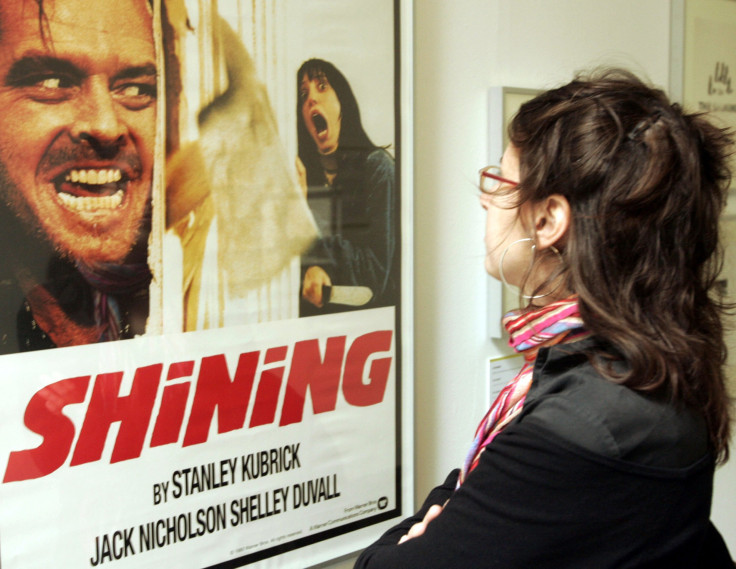Hollywood Horror Producers Hope To Scare Up Small Investors Through New SEC Equity Crowdfunding Rules

LOS ANGELES — Investing in entertainment doesn't have to be scary. But two veteran Hollywood producers prefer when it is, and they want to take average fans along for the ride with the help of new equity crowdfunding rules adopted in October by the U.S. Securities and Exchange Commission.
Marlon Schulman and Brian Herskowitz have launched the Horror Equity Fund, a private investment effort they hope will fund a series of horror movies — and, potentially, video games and mobile apps tied to the genre. Because of the Jumpstart Our Business Startups (or JOBS) Act, which mandated the SEC’s new rules, their fund is soon to be an investment option open to a much wider audience.
"For the first time, people who love horror and investors who aren't sure how to get into entertainment can get involved," Schulman said. "They don't have to come up with thousands of dollars."
The fund is already live on the website Crowdfunder under Regulation D of the JOBS Act, which allows companies to raise cash from accredited investors — typically people earning more than $200,000 yearly or with a net worth of more than $1 million — through a general solicitation, better known as standard advertising practices. And Schulman said it's soon going to start bringing in investors under Regulation A+ of the JOBS Act, which allows private companies to raise up to $50 million a year by selling shares to investors who don't have to be accredited. But unlike public stock, those shares can't be traded on the secondary market.
That means that for as little as $200 or $300, which Schulman estimated shares could be priced at, any horror fan can buy an equity position in a film finance company — and maybe end up with a piece of the next "Blair Witch Project," the micro-budget 1999 horror film that delivered a 414,000 percent return on investment. But if things don't go well, they'll be stuck with private stock that's hard to sell.
"We are sort of a poster child for the new regulations," Schulman said.
Slash and Burn
Schulman, who is best known in the entertainment world for his efforts in introducing Japanese anime to the U.S. market, described the Horror Equity Fund as "ostensibly a studio without production overhead."
"We'll basically assist in the financing and accelerate the production of films," he said. "We'll be able to invest in whole or in part."
And he said, independent horror films' history of profitability and relatively low production costs make it the right genre for this type of investment vehicle. Herskowitz said most of the films the fund plans to invest in will have production budgets of under $1 million, which allows them to spread out the risk. And the genre’s track record speaks for itself.
"Fifteen out of the top 20 films by return on investment every year are consistently horror films," Schulman said. "Most of the time, they are independent films."
Schulman and Herskowitz also look for less obvious revenue streams. For example, the Horror Equity Fund's first funded film, "Star Leaf," which is about a group of hikers who stumble upon some extraterrestrial weed, will soon be sold on DVD in marijuana dispensaries throughout the country. And Schulman said he wants to take advantage of gaming and mobile app opportunities, as well.
"About 80 to 85 percent of what comes in is going to be film-related," Schulman said. "But we're always looking to see if it has a great storyline that can become a great mobile game or app. It helps mitigate the risk to investors."
Broad Appeal
The Horror Equity Fund spreads the risk by not putting it all in one particular movie. That makes it somewhat different than typical crowdfunding campaigns, which generally raise money for very specific projects. But Schulman said that doesn't really make sense in film production, especially original movies that do not have a proven audience.
"It's not appropriate for an individual movie or project," Schulman said.
Bryan Sullivan, a partner at Los Angeles law firm Early Sullivan and expert on crowdfunding, agreed.
"The entertainment industry is so high-risk compared to almost everything else, so it's not typically great for crowdfunding," he said. "But the Horror Equity Fund is different, because they plan to invest in a broad range of horror films and involve the fans. They're not doing one movie and sinking all their money into it."
And horror tends to travel well, which also helps mitigate risk. If a movie bombs in the U.S., it might do well in South America and Europe — without relying on translated dialogue to carry it.
"The one thing about horror, what sets it apart from comedy and drama, is if I'm a monster and I jump out at you, I don’t have to speak any particular language,”"Schulman said.
And in fact, Sullivan has firsthand experience just how rewarding that aspect can be.
"I executive-produced a very bad horror film," he said. "It sold overseas, and it made a lot of money."
© Copyright IBTimes 2024. All rights reserved.





















